Simplified: Why court said no to Perlis Islamic council’s bid to give lessons on religion to Hindu mum Loh Siew Hong’s kids
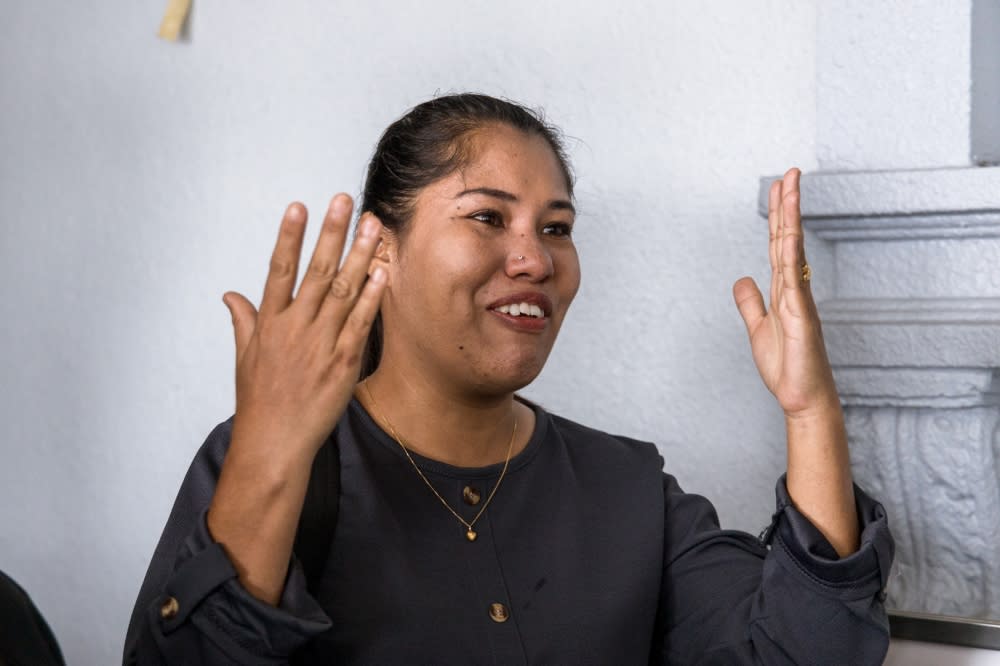
KUALA LUMPUR, Oct 22 — The High Court earlier this month rejected the Perlis Islamic council’s bid to get regular access to Hindu mother Loh Siew Hong’s three children — who were unilaterally converted by their Muslim convert father — to give them Islamic lessons and take them to the mosque.
Why did the Perlis Islamic Religious and Malay Customs Council (MAIPs) ask for access, including entry to their house to supervise Loh to ensure that her three children are raised in a conducive environment according to Islam.
How was MAIPs’s court application made? Why did the High Court say no to such an application and what were the laws involved? What do the three children actually want?
Here’s a summary of the 41-page High Court judgment as sighted by Malay Mail:
What happened before this
Both Loh and her then-Hindu husband married in a civil marriage in 2008, with their three children born in Kedah.
Loh said there was domestic violence by her then-husband as early as 2017, and that she had to be hospitalised in March 2019 due to injuries from her husband’s assault. Since then, she had no access to her children and in October 2019 filed for divorce.
While the divorce proceedings were still ongoing, the husband on July 7, 2020 converted both himself and the children to Islam — without Loh’s knowledge and consent — in Perlis. At that time, the twin daughters were aged 11 while the son was nine years old.
While the High Court on March 31, 2021 granted Loh the sole guardianship, custody, care and control of her three children as part of the divorce (Note: this is the custody order that MAIPs later wanted to change), she did not know where they were and was kept separated from them for about three years from 2019 until 2022.
After Loh finally reunited with her children on February 21, 2022 following a High Court order for them to be returned to her, MAIPs on March 7, 2022 applied to intervene or be part of Loh’s divorce case in order to ask for changes to the custody order.
MAIPs initially failed to be an intervener when the High Court (Family Division) on June 15, 2022 dismissed its bid, but later succeeded in its February 7, 2023 appeal at the Court of Appeal and was allowed to intervene.
MAIPs on February 17, 2023 then applied to the High Court (Family Division) to ask the court to vary or make changes to the custody order. At this point in time, Loh had been reunited with her children for just nearly a year.
This MAIPs application was heard before a different High Court judge, and this is the application which was rejected this month.
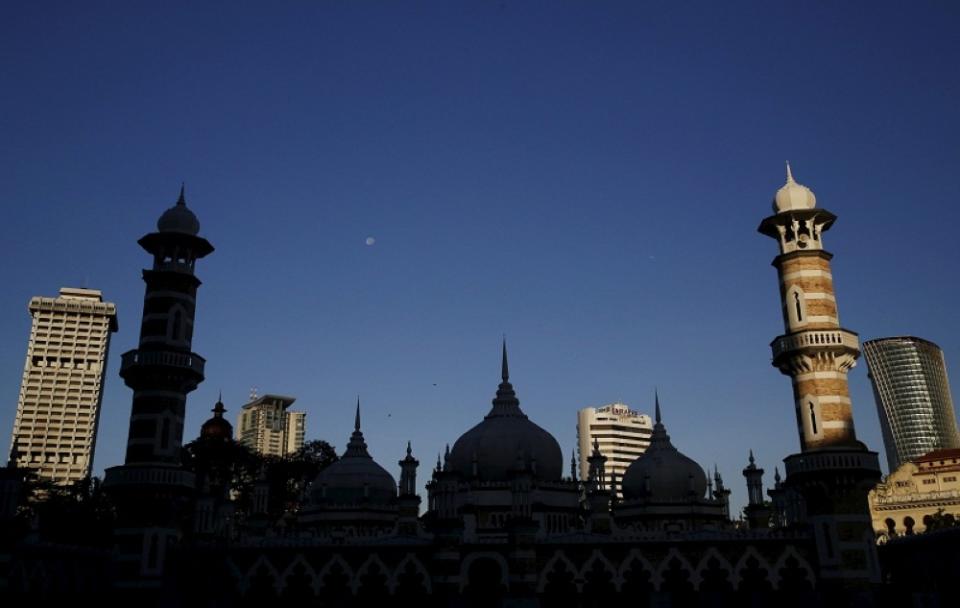
MAIPs wanted to take Loh’s son to a mosque within 10 kilometres of his house for Friday prayers, and to bring all three children to celebrate major Islamic occasions at any mosque, surau or government venue within 10 kilometres of their house. — Reuters pic
What did MAIPs want to change in the court order?
In its application, MAIPs wanted the court to add orders to the custody order (which gave Loh sole custody of her three children).
Among a long list of items, MAIPs wanted to get supervised access to the children in order to give them two hours of basic Islamic lessons every two weeks, describing them as “kanak-kanak muallaf” or child converts.
MAIPs wanted to take Loh’s son to a mosque within 10 kilometres of his house for Friday prayers, and to bring all three children to celebrate major Islamic occasions at any mosque, surau or government venue within 10 kilometres of their house.
MAIPs wanted to get access to give financial and education aid to the children, and to give financial aid to Loh for raising them.
MAIPs also wanted to be given access — including entering Loh’s house — for up to one hour every three months, to supervise and guide her on raising her children in a conducive environment according to “syarak” or Islamic laws (including but not limited to the eating of halal food).
What did the High Court decide?
Family Court judge Hayatul Akmal Abdul Aziz on September 27 heard MAIPs’s application to gain access to Loh’s three children and even interviewed the children privately, before deciding on October 11 to dismiss MAIPs’s application.
Here are the laws involved in this case:
Under the Law Reform (Marriage and Divorce) Act 1976’s Section 88, the court has the power to make an order for a child’s custody: to be placed under the father; or mother; or (if there are exceptional circumstances making it undesirable for the child to be entrusted to either parent) to a relative or to an association whose objective includes child welfare or to any other suitable person.
Section 88 requires the child’s welfare to be the court’s “paramount consideration” when deciding on the child’s custody, with the court to consider the parents’ wishes and the child’s wishes if the child is old enough to express an independent opinion.
This means the child’s welfare must be the overriding consideration or the most important factor.
Under the same law’s Section 96, the court has the powers to vary custody orders when “any interested person” applies for it, and the court can vary the court order at any time if the court is satisfied that there is one of these situations: the custody order was based on misrepresentation or mistake of fact; or when there has been any “material change in the circumstances”.
MAIPs told the court that its application under Section 96 to vary the custody order — to gain access to Loh’s three children — is based on the alleged “material change in circumstances” when the trio were converted to Islam.
The short answer to why MAIPs failed in its application: The High Court found that there was no material change in circumstances and therefore dismissed the application to vary the custody order on Loh’s three children. (Remember, under Section 96, there must be a material change of circumstances before the court can vary a custody order.)
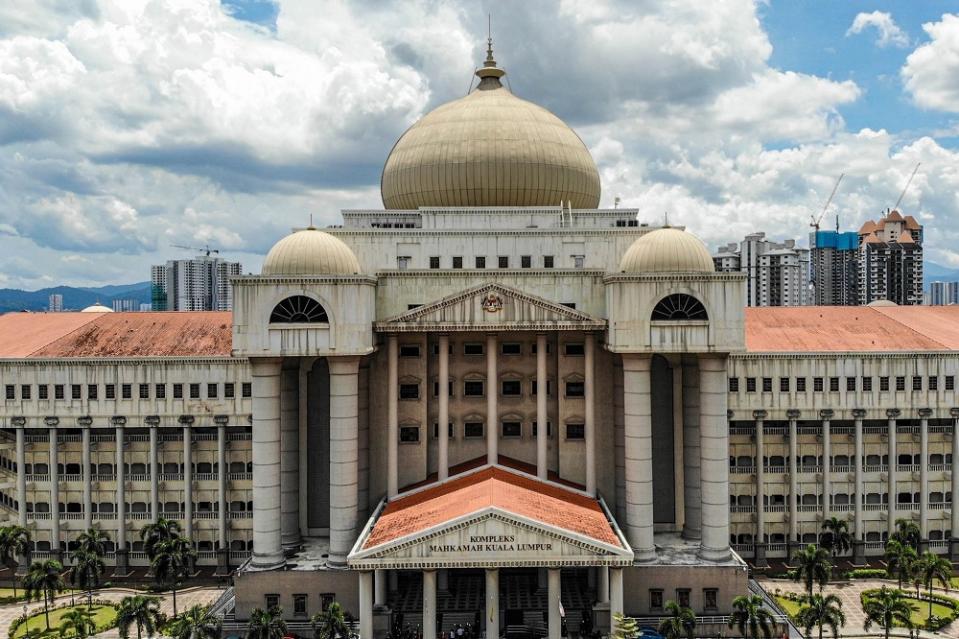
An aerial view of the Kuala Lumpur High Court April 23, 2020. — Picture by Hari Anggara
Here’s the longer explanation:
First of all, judge Hayatul Akmal made it clear that the unilateral conversion of the three children is a separate case currently awaiting hearing at the Court of Appeal, and that Loh’s ex-husband’s previous application to stay and vary the March 31, 2021 maintenance order — where he initially had to pay RM3,000 for the children’s maintenance — is also a separate case before another High Court judge.
For the separate maintenance matter, the High Court last month reportedly dismissed the ex-husband’s bid to stay the maintenance order, but lowered the maintenance amount he had to pay to RM600 per month.
Loh did not object to the lower maintenance amount and argued that MAIPs cannot compel her to accept their financial aid in caring for her children, also arguing that MAIPs could channel aid by paying the ex-husband to enable him to pay for the children’s maintenance if the Islamic council was genuinely interested to assist financially.
As for the unilateral conversion matter, the High Court on May 11 dismissed Loh’s challenge, and the Court of Appeal is scheduled to hear her appeal on January 10 next year.
In other words, Loh is still pursuing the court challenge on the legality of her children’s conversion, and their religious status in official records is still being disputed in the courts.
Those two cases including the unilateral conversion challenge are separate matters, and the High Court only had to decide on MAIPs’s application for access to the children based on whether there was material change in circumstances.
But Hayatul Akmal said she had touched on overlapping issues out of necessity, making it clear that her judgment should not be seen as interfering with or deciding on those overlapping issues in those two separate cases.
Both MAIPs and Loh had raised issues like the unilateral conversion during the hearing on MAIPs’s bid to get access to the children, and the judge was addressing the points that they had raised.
Among other things, MAIPs cited the Perlis state law Administration of the Religion of Islam Enactment 2006’s Section 117(b). Section 117(b) originally required the consent of “ibu dan bapa” (both parents) for children or those aged below 18 to convert to Islam, but Perlis amended it in 2016 to allow the conversion of children if there is consent from “ibu atau bapa” (mother or father).
Besides the 2016 version of Section 117(b) allowing unilateral conversion in Perlis, MAIPs also cited the Federal Court’s December 2007 decision in the case involving Hindu mother R. Subashini and her Hindu-turned-Muslim husband who had converted their elder child to Islam. The 2007 court decision had interpreted the Federal Constitution’s Article 12(4) to say that a child’s religion can be decided by one parent.
MAIPs had argued that the three children’s conversion to Islam remained legal and valid, and claimed that it has the statutory responsibility under the same 2006 Perlis state law to provide guidance and instruction on Islam to them and to ensure their welfare. MAIPs claimed it has the responsibility of acting as “in loco parentis” or in place of the three children’s parents in terms of Islamic education.
In objecting to MAIPs’s application, Loh had argued that the children’s unilateral conversion was illegal, based on the Article 12(4) interpretation in the Federal Court’s 2018 decision in the case of Hindu mother M. Indira Gandhi and her Muslim convert ex-husband who unilaterally converted their children to Islam.
In Indira’s case, the Federal Court ruled that consent of both parents is required for the religious conversion of children.
The Indira Gandhi decision is still the law of the day
While MAIPs cited the 2007 decision in Subashini’s case, the High Court said the Federal Court’s 2018 decision in Indira’s case “is the law of the day on unilateral conversion of underage children” and that the courts are still bound by this precedent.
“In the premise, the consent of both parents is required for the conversion of the said children. MAIPs cannot ignore or refuse to comply with the legal position established in Indira Gandhi’s case, that is the legal position that binds the courts and parties subordinate to it.
“That position remains unchanged until it is revisited and changed by the apex court,” the judge said, having noted however that the validity of Loh’s three children’s conversion certificates is still a matter before the Court of Appeal and that she was merely addressing MAIPs’s arguments in this case.
The High Court said the 2007 decision cited by MAIPs had been superseded by the 2018 decision in Indira’s case, noting that when there are two conflicting decisions from the Federal Court, all lowers courts must follow the latest decision as it represents the existing state of the law and prevails over the earlier decision.
The Federal Court’s 2018 decision in Indira’s case was applied by the Court of Appeal in 2021 in a unilateral conversion case involving a Buddhist father and a Buddhist-turned-Muslim mother, with the Federal Court in April 2022 also citing the Indira decision in the same case.
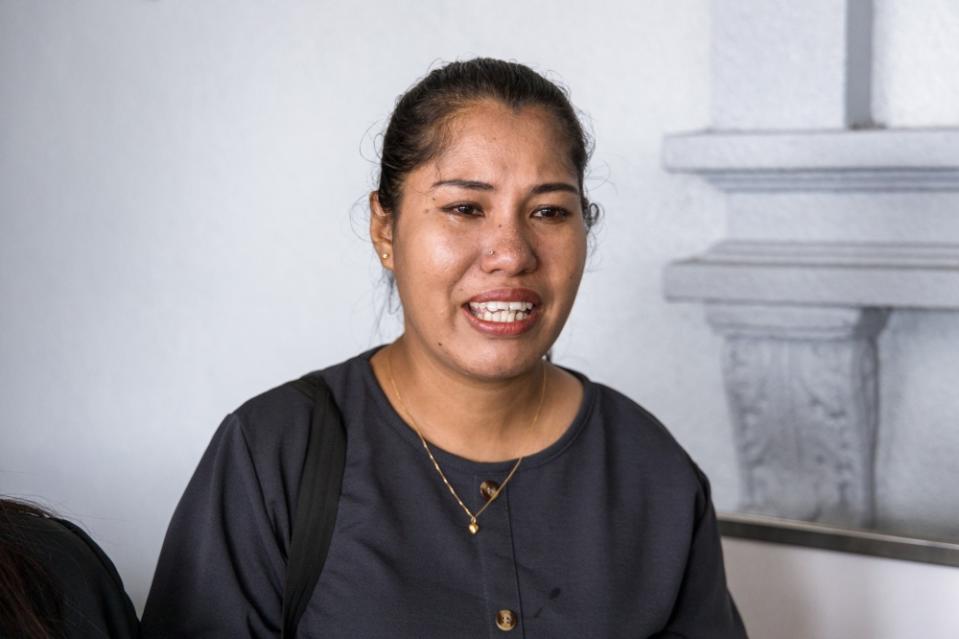
Loh Siew Hong speaks to reporters after court decision at Kuala Lumpur High Court in Kuala Lumpur October 11, 2023. — Picture by Firdaus Latif
Children’s interests are paramount consideration; what the children wished for
The High Court said it could not accept MAIPs’s misplaced and “simplistic argument” that since the father was a Hindu and had converted to Islam, that it was only appropriate that the children who were also Hindus follow in the father’s footsteps and embrace Islam, stating: “Indeed, there is no compulsion in matters of faith.”
The judge also said MAIPs’s proposed access is “intrusive and not in the children’s best interest”, adding that the court order granting sole custody to Loh means she has the authority to decide her children’s day-to-day affairs unless she had acted in any way that would be negative to their welfare.
The court said there was no compelling evidence to show Loh had acted in such a way.
The judge also disagreed with MAIPs’s request to get physical access into Loh’s home for one hour every three months to monitor and supervise her in raising her children, stating: “Not only is it intrusive and an invasion of her privacy, but it is also disrespectful to her at no fault on her part. That is simply going too far over a matter that it has no authority.”
The judge said Loh’s position — that she and the children do not need any aid from MAIPs — has to be respected.
Agreeing with Loh that it is the ex-husband who has a legal duty on the children’s welfare instead of MAIPs, the judge said the 2006 Perlis state law cited by MAIPs does not support the Islamic council’s claim that it could act as “in loco parentis” or in place of the three children’s parent.
The judge said whether the three children want to remain as Muslims is not a factor for the High Court to consider when deciding whether to vary the custody order.
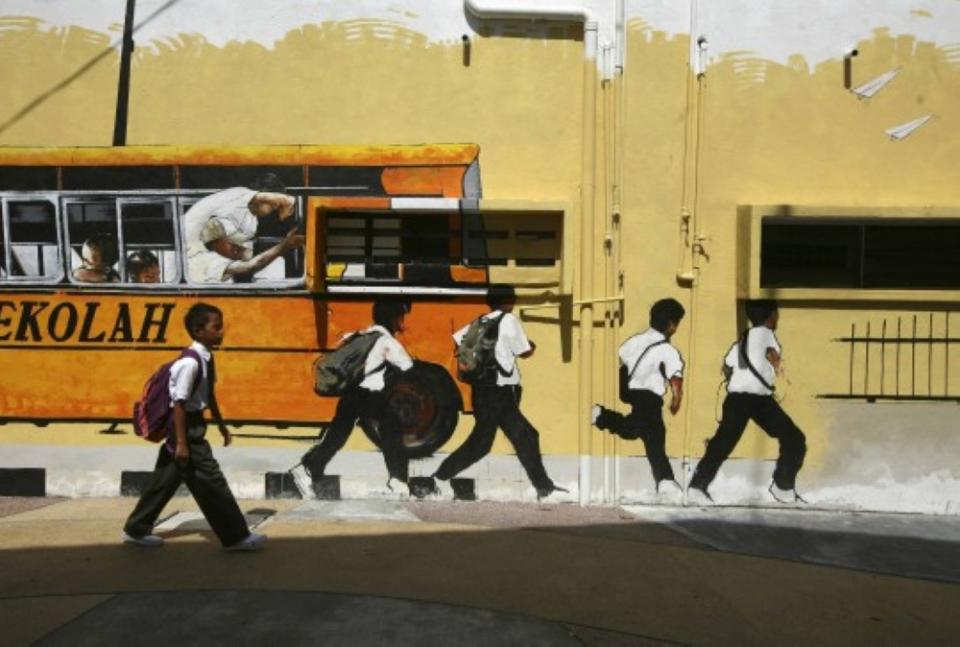
A school boy walks past a street mural depicting a school bus and students in Shah Alam, January 2, 2014. — Reuters pic
Citing the law and past court decisions, the judge stressed that the interests and welfare of the child is the “paramount consideration” in deciding on child custody, but said the court can consider the wishes of the parents and the children.
With no objections from all parties and with MAIPs’s lead lawyer saying it would be fair for the judge to interview the three children to get a complete picture, the judge had on September 27 interviewed each of them individually in her chambers. The twins would be 15 this year, while the boy is aged 12.
The judge said the three children had very good command of the Malay language — which they chose to be interviewed in — and could understand her questions clearly and could voice their opinions very well.
Based on the separate interviews which she had started by reminding them to tell the truth as it would be for their benefit and wellbeing, the Family Court judge said the three children “expressly objected” to MAIPs’s application to get supervised access to them.
“They do not want MAIPs to have access,” the judge said regarding the three children’s views, adding that they said they were afraid of the father who had allegedly later become abusive.
After being separated from their mother for almost three years and being reunited to live with her in 2022, the judge said the three children “are now very happy”.
“They go to school, wish to concentrate and do well in their studies, and are very active in co-curricular activities,” the judge said, adding that the children told her that “they do not want to be Muslims”.
The Family Court judge said the facts of the case showed that the three children had gone through “multiple traumatic experiences” in their formative years, providing a chronology of events in their life showing the “trauma and how topsy turvy the life they have endured since they were uprooted, taken away, and alienated for approximately three years from their mother” by their father.
These events include alleged domestic violence by the father during the years 2017 to 2019; the children being removed from their Kedah home and living with a woman known as Nazirah Nanthakumari and later placed in a religious centre in the same state in September 2020; the father in October 2020 ceasing his visits to the children and with his location unknown (it was discovered later that he had been detained for drug offences); the twin daughters and the son being separated to live at the hostels of two religious schools in Penang in late 2021; the locating of the mother in January 2022 by Nazirah at the children’s request; and the children being under the care of the Social Welfare Department for about two weeks in 2022 where they were again placed at two separate places, before they were reunited with their mother in late February 2022.
In light of the children’s traumatic experiences, the High Court said “long-drawn, unnecessary squabbles on access are not in the said children’s best interest”.
“The adults should accept the situation as it is. Cumbersome legal machinery should not be used to bear upon them and compel them to do what they do not want to do.
“Parties as adults must accept the situation. Stop denying and/or interfering in whatever is left of their growing-up years as cared for and nurtured children,” the judge said, before dismissing MAIPs’s application and giving no order for costs.
Following the High Court’s October 11 decision, Loh — who was in tears — told reporters: “I’m a mother and I just want to prioritise my children’s education, not to remember court cases... we want to live peacefully, that is what I am asking for.” At that point in time, the children had been reunited with her for just slightly over one year and seven months.
When contacted, Loh’s lawyer J. Gunamalar told Malay Mail that MAIPs had on October 20 filed an appeal at the Court of Appeal against the High Court’s decision to dismiss the Perlis Islamic council’s application — to vary the custody order in order to gain access to Loh’s children.
The Court of Appeal is scheduled to meet next January 10 to hear Loh’s challenge on the legality of the unilateral conversion of the three children to Islam.



